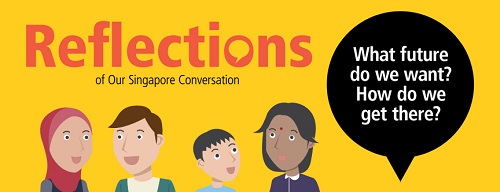By Robin Low


Social media is becoming a mature communication platform everywhere. In the early days, marketers have used social media as another medium to broadcast their messages. People joined social media because it is new, many thought it might be a fad and asked the question “Why do we do social media?” Years later, after 1.5 billion active users use Facebook daily, the question now is “How can I do better?”
Brands are using multiple platforms to engage their stakeholders. Hashtags are being commonly used across platforms. There are great interests in mobile devices and location based apps. These social technology updates today change our behaviors in many things we do. But social media is more than just Facebook, Twitter and using Hashtags, it is being an influencer.
In the age of the search engines, content is king. But in the age of social media, context is king. Amplification of signal is crucial to filter out the noise. The top-down information structure is long overdue and context is the catalyst that shifts focus on relevance. Our networks expand and contract. The pressure of connection is not significant as people today look for meaningful connections, relevant information and deliberate value. In the center of every experience are individuals interacting in the network — people driven information network.
With advancements in communications and technology, organizations may risk losing their relevance if they do not evolve and keep up. Traditional media cannot keep up with the speeds of social media. The era of command and control is over, large organizations and governments do not hold all the information, and in fact, information we get is increasingly social. Large organizations with top down bureaucracies find it hard to keep up with the dynamic challenges, and most often, when they fail to control the medium, they fall back in what they know — censorship.
In Vietnam, there is a contentious legislation that effectively prohibits Vietnamese bloggers and users of social-networking sites from discussing current affairs and sharing online stories. Unfortunately these decrees are becoming more common as countries lay down draconian laws about how their citizens are to interact with the Internet. China too has laws that put bloggers and others who share news to jail if they consider it to be rumours.
In Singapore, the government intends to moderate the online social space. The ministers used the term “noise” to describe the activity on social media, and there is a heavy tone on caution and danger whenever they deal with online discussions. The Online Citizen, an online news portal was gazetted as a political association for covering an alternate views in the General Elections. There were also sedition charges against political cartoonist Leslie Chew; the list goes on.
After losing popularity in the general elections and the by-election, the government started Singapore Conversation, a national conversation initiative planned at getting feedback and understand ground sentiment. However, many people are sceptical about the initiative’s effectiveness to understand the average Singaporeans.
Conversations happen on the Internet with or without the government’s approval. Setting up an official channel to listen to the public is not a good idea to solicit engagement as people engage on their own terms. Forcing communications into approved mediums and moderating views will often result in many people not participating at all. When the other mediums are ignored, many who share their views but are not heard become more apathetic or they begin to complain whenever they get a chance to do so.
With a goal to understand Singaporeans’ priorities, values and preferences, it hard to succeed when a selected group is allowed to participate, as information gathered is likely to be skewed. There will also be a waste of resources when the solutions implemented get a backlash from the public which causes the initiative to end prematurely after much planning and money spent.
The future of organizations is defined through shared experiences. The concept of engagement is simple, but the design of the public experience is complex in reality. Meaningful designs with intend, personalization and incentives to increase value of sharing all form the essence of the shared experiences. The emergence of new media creates new opportunities for engagement. At the heart and soul of the organization, a culture must take shape for it to lure affinity. Engagement in the human network requires a new outlook, a new approach, new model for conveying leadership and empathy. The organization needs to support thriving communities around them and have the infrastructure for the rest of the organization to support this. If the government can understand this, then they can be on their road to relevance.
Robin Low is a young Singaporean living in Boston. He is the founder of a nanotechnology company in the US.

